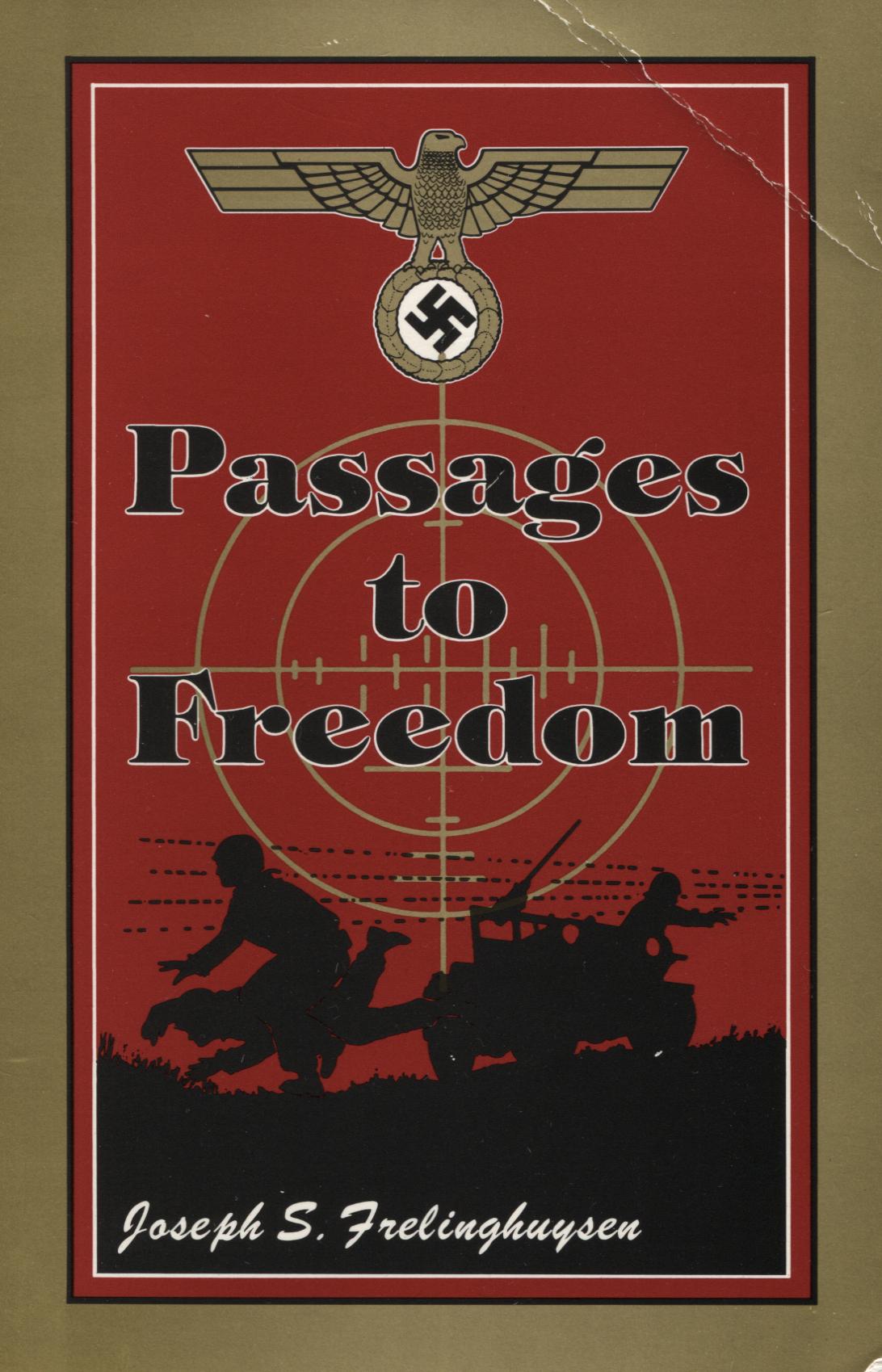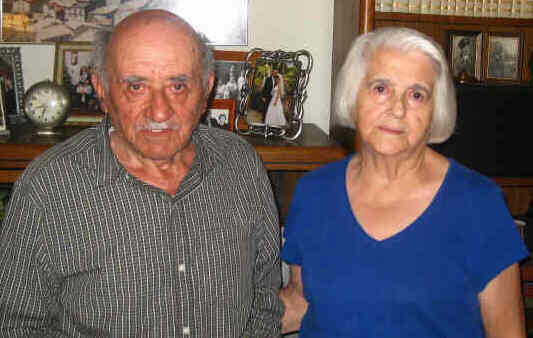 |
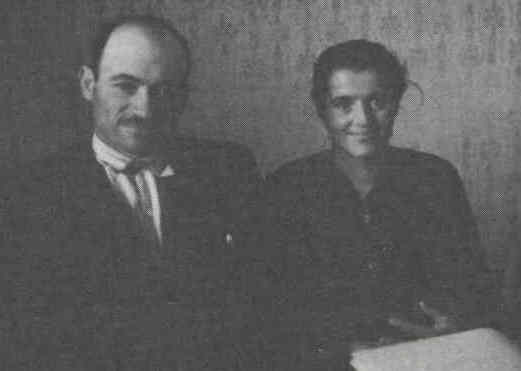 |
Berardino, age 97, and Letizia, age 86,
here in August 2011 at their home in Raritan.
They have been married for 69 years |
Berardino and Letizia during their days in Italy. |
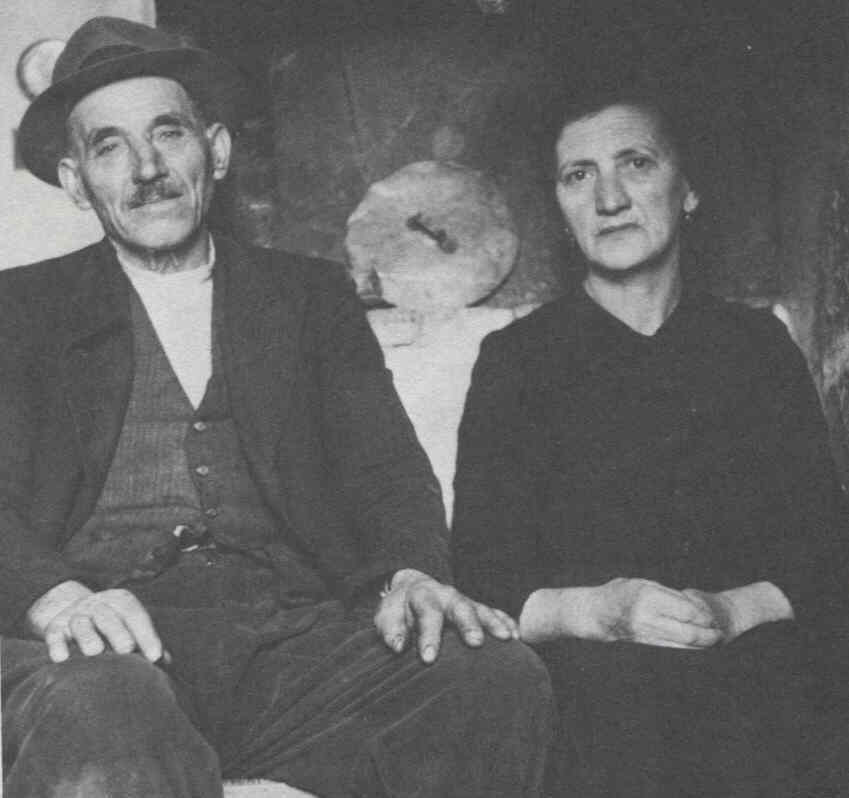 |
In 1943, Berardino and Letizia DiGiacomantonio lived and worked on Berardino's parent's farm in the town of
Montenerodomo in the Abruzzi Region of Italy. As the war raged around them, the German Army occupied the area and ruled with an iron grip.
The DiGiacomantonio’s farm was situated along a route that escaping U.S. & British soldiers would take to avoid capture by the Germans.
As the farm house was a 30 minute walk to the nearest road, it made an excellent hiding place for the escaping soldiers.
During the Italian campaign, they helped dozens of Allied soldiers escape capture. Some were escaped POW’s while others were airmen who had been shot down.
They would provide them with much needed food and shelter. By doing so, they put their own lives and the lives of their family in danger as the punishment
for helping Allies evade capture was death. The Germans would not hesitate to execute entire families – men, women and children if they were caught
harboring any Allies. In addition to Allied personnel, the DiGiacomantonio s (along with their families) also helped dozens of their fellow countrymen
who were fleeing the brutality of the Germans. |
| Berardino's parents Antonio and Rosa owned the farm. |
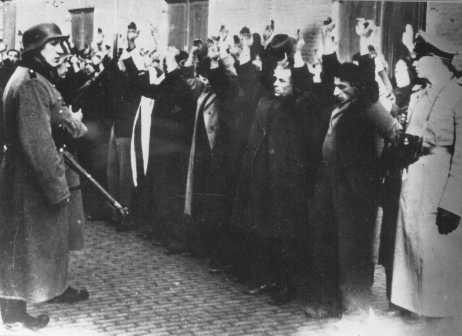 |
Italy suffered from food shortages throughout the war as the local economies were devastated and food
was forcibly taken from the Italians to feed the German Army. Any local opposition to the Germans was met with swift and fierce retaliation to the individual
and sometimes family members as a warning to others.
Often the Germans came into the DiGiacomantonio home to demand food, supplies, or anything else of value. The soldiers even took five cows from the
DiGiacomantonios who managed to hide one cow from the Germans. The soldiers also destroyed all of their beehives and confiscated the honey for themselves.
Berardino and Letizia hid whatever food they had from the Germans. However, the Germans would do a thorough search of the home trying to find hidden food.
The DiGiacomantonios learned not to prepare or process a large amount of food at one time. Only the food that they needed for that day would be prepared.
While the Germans were brutal, often they could be outwitted, Berardino said "they believed all of our lies.
In addition to the Germans regularly searching individual homes, they pressured the town's mayor to organize large group “donations” to the Nazis.
At first the local people gave food and supplies in the hope of keeping peace with their occupiers. But the demands kept coming and the residents
then refused to give what little they had left. This resulted in some more brutal retaliation methods to be employed by the Nazis. One technique
was to enter a home, demand some supplies, and then make one of the male residents carry the supplies several miles to the German camp.
The Germans would then execute the man as they did not want to the location of their camp to be known.
Many civilians in Italy were murdered by the Germans.
A total of 26 people from their hometown of Montenerodomo were executed. Berardino and
Letizia knew some of these people personally. The Germans also went on a rampage and destroyed many of the homes in their town and the
surrounding towns. Fortunately, Berardino and Letizia’s home was far enough out of the way that it was spared.
"
|
|
|
One of the U.S. soldiers that they helped was Joseph S. Frelinghuysen Jr. (JSF) who had once
lived in Raritan. He later told his story of escape and how he traveled through the countryside in Italy in a book he authored entitled”
Passages to Freedom: A Story of Capture and Escape”. He along with his friend Dick Rossbach, had first escaped from a German POW camp in Italy.
Along their journey, Berardino and Letizia provided them shelter and food for two weeks while they recovered from injuries they sustained during
their escape. With the help of the DiGiacomantonio family and others, they made it back to the Allied lines on November 16th, 1943, seven weeks
after escaping from the POW camp.
Berardino and Letizia and the other Italian people had little themselves, but they shared what they had with the U.S. and British soldiers who
were running from the Germans. Joseph S. Frelinghuysen Jr. (JSF) found this to be amazing. In his book he wrote "It was beyond belief that these people,
who were totally impoverished, were willing to share what little they had with strangers and foreigners."
|
Joseph S. Frelinghuysen told his story of escape
in the book Passages to Freedom.
The book is available at the Raritan Library and on amazon.com
It is a thrilling and inspiring story
Click for Info on Joseph S. Frelinghuysen Jr. |
The assitance that Berardino gave to JSF can
be seen in this page from Passages to Freedom |
 |
JSF, one night while dinner was being served to several soldiers, thought: "As I watched the amount of food being consumed, I wondered about their generosity. I had counted 14 people, they could not keep handing out food to that many." He worried for them, writing: "The thought of what the Germans might do to these people if they were caught harboring prisoners sickened me."
In a 1992 interview Berardino was asked: “Why, when you had so little, did you share with strangers?”
He answered: "We have a tradition in Italy of helping each other. My father did it, my grandfather did it and so I did it. That's the way it has always been. If I have a potato and there are two people, I divide it in half, half for you and half for me. If we gotta die, we die together."
When asked “Do you understood the risk that you took?”
He answered: "We knew the risk; we knew everything about that. God helped us with that. We were very fortunate that things worked out the way they did, because we took many chances."
|
| The local landscape in 1943 |
 |
Asked today about Joseph S. Frelinghuysen Jr. (JSF), Berardino said that Joe stood out from the other soldiers in that he had
great concern for them. While he was in their home, he always worried for their safety. JSF was very grateful for the food and shelter that he received.
Berardino remembers how impressed he was that as soon as the U.S. Army moved up through Italy and liberated their town from the Germans, a letter
arrived from JSF expressing his heartfelt thanks for their help. |
Berardino on his farm around 1950
Click to see enlarged photo |
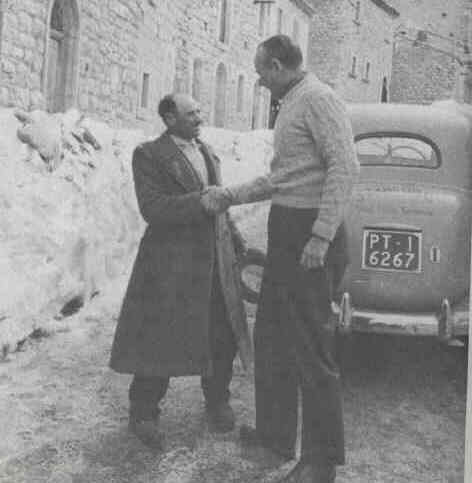 |
Following the war, Joseph S. Frelinghuysen Jr. kept in touch with The DiGiacomantonios. In 1956, he returned to Italy to visit with them.
To show his gratitude, he would help Berardino and his family immigrate to the U.S.
However, the process of getting someone legally into the U.S. proved to be a difficult one. The U.S. Immigration Service required a
reason to grant a person entry into this country. The reason could be that someone is a skilled worker whose specialized talents were needed
by an American company and could not be filled by an American worker.
JSF was the manager of his family owned dairy, Raritan Valley Farms.
He also had connections in government and was determined to help the family whom he credits with saving his life. Remembering that Berardino
made excellent cheese, JSF advertised a job for a cheese maker who was familiar with the cheese making process of the Abruzzi region in Italy.
Berardino could fulfill this requirement and the INS granted his request to enter the U.S. He came to America in 1958 and moved to Raritan staying
at the historic home known as The Cornell Mansion located on the corner of Glaser and Granetz Avenue. After a few years, the rest of his family would
be granted entry to the U.S to join him.
|
| Berardino & Joe Frelinghuysen meet again in 1956 |
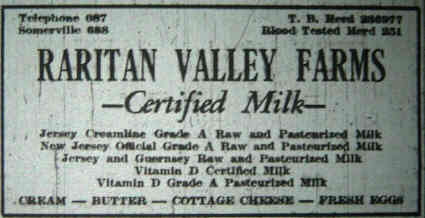 |
In 1969, the family moved to 308 Bell Avenue in Raritan where they remain to this day. Joseph S. Frelinghuysen Jr. became a cherished friend who visited them every month until his death in 2005. |
 |
Berardino and Letizia's first child Antonio was born during the war in 1943 on a night that
the Germans were searching homes in the area. Joseph S. Frelinghuysen Jr. was staying at their home at the time.
The book Passages to Freedom tells the story of Antonio's birth -
Click to read the story of Antonio's birth
Antonio would come to this country in 1959 - 1 year after his dad had arrived. He would put his Italian Heritage to good use as he taught Italian at The University of South Carolina
for 32 years. He retired in 2010. |
 |
They would have 6 children.
5 born in Italy and the youngest born in the U.S..
All the kids, now grown, graduated from
Bridgewater / Raritan High School
Today they have
9 grandchildren and
4 great-grandchildren |
The DiGiacomontonios
Patrizia, Antonio, Adrianna, Lorenzo,
Rosa, Letizia, Berardino, and Maria. |
 |
Today they live peaceful in this home
on Bell Avenue in Raritan.
After their war time experience
they take nothing for granted.
Letizia says that living in peace is a blessing.
It is wonderful not to live in fear. |
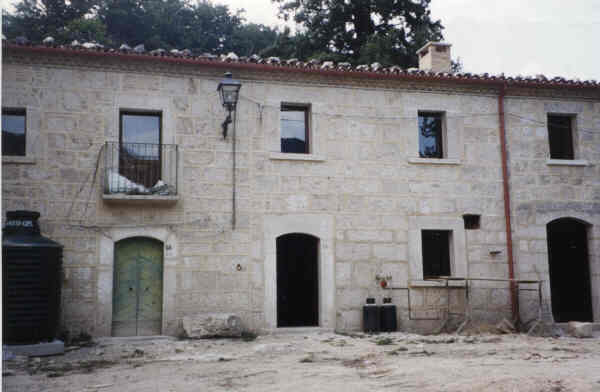 |
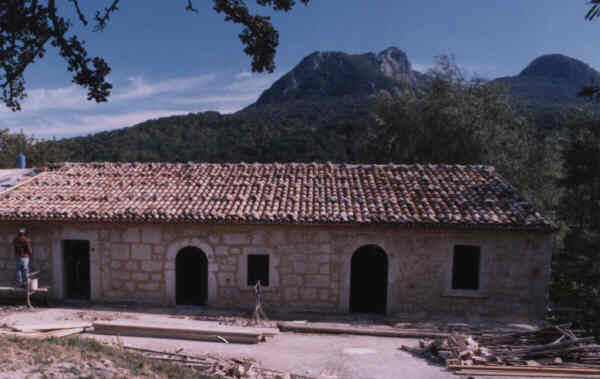 |
Here is the home in Italy that
they lived in during World War II
(photo from 1990) |
The back of the home in Italy. What a great view!
(The landscaping in the back covers the first floor of the home.) |
As for the home and farm land in Italy that they left fifty years ago, they still own it.
Letizia says that they had been through so much in the house - they could not part with it.
Occasionally a family member will return to stay at the old house.
They even had the house upgraded to add running water and electricity.
Luxuries they did not have in World War II. |







